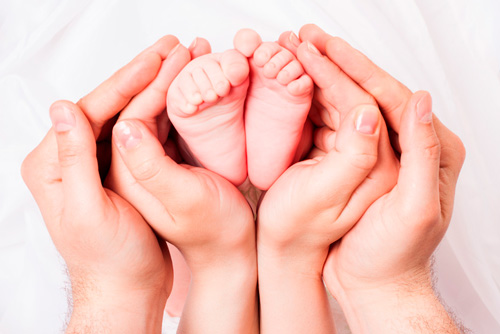
This is a High-Complexity Assisted Reproduction Technique that involves performing In Vitro Fertilization (IVF) with donated eggs and has the highest success rate for achieving pregnancy.
The donated eggs we use at our clinic come from CeiferBiobanco (a clinic specializing in egg and sperm donation) or from our own donors who are young (average age between 18-32 years), healthy, non-infertile women. These donors undergo a comprehensive interview to rule out metabolic diseases, as well as psychological evaluations, and complete physical examinations with an emphasis on the absence of alterations in the female reproductive tract. Finally, a screening is conducted to rule out infectious diseases, and a chromosomal and monogenic disease study is performed. All of this is done before they are accepted into our program.
The donation is anonymous and altruistic.
All women have a biological clock that determines when their reproductive function will cease. The ideal reproductive age ranges from 18 to 35 years. After this age, there is a decline in ovarian function, reflected in the decrease in both the quantity and quality of eggs. Consequently, the possibility of achieving pregnancy spontaneously diminishes, and after the age of 38, the chances decrease significantly, even with high-complexity Assisted Reproduction Techniques. By the age of 42, the possibility of pregnancy is less than 5%, making egg donation the alternative for these patients.
This program has been designed to offer the best coordination as well as the highest success rates. Egg donation is a High-Complexity Assisted Reproduction Technique that involves performing In Vitro Fertilization (IVF) with donated eggs, and it has the highest success rate for achieving pregnancy.
There are two variants in egg donation:
Egg Bank: These are eggs that are frozen at -196 degrees Celsius and come from these same donors.
Fresh Donation: As the name implies, the procedure is done like an organ donation, performed fresh, and requires that both the recipient and the donor have their menstrual cycles previously synchronized.
Indications:
-
Women without ovarian activity:
- Menopause.
- Premature ovarian failure.
-
Women with ovarian activity:
- Advanced reproductive age.
- Repeated IVF failures.
- Mothers carrying hereditary diseases.
- Endometriosis with severe ovarian involvement.